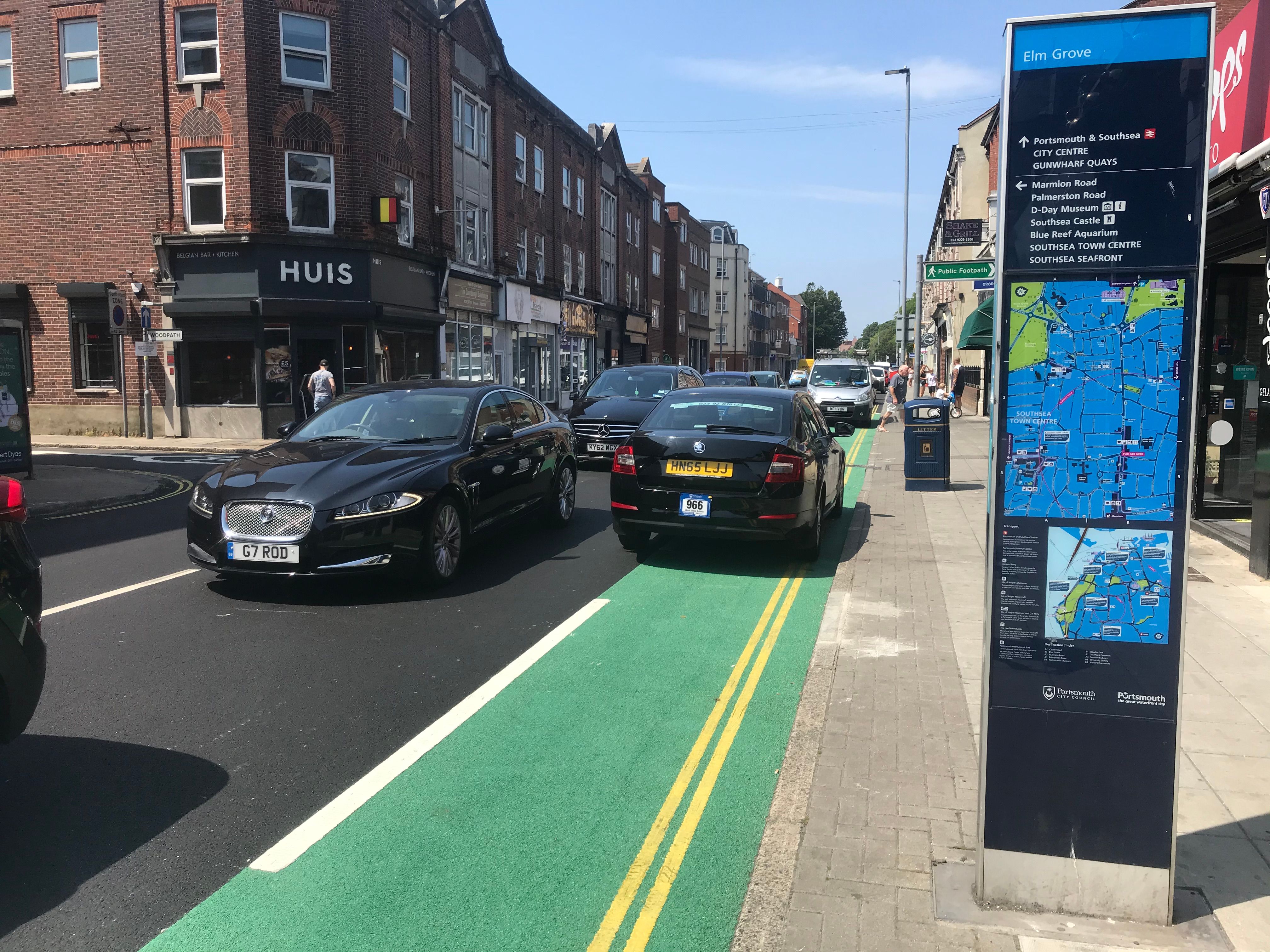One of several consultations to all arrive at the same time this summer was Portsmouth City Council’s (PCC) new long term strategy. The document is called “Transport Strategy 2020” but we all know it as LTP4 as it’s the fourth iteration of the city’s Local Transport Plan. Although these documents are no longer mandated by government, they are the basis of all local transport decisions and are crucial for setting goals, and securing future funding.
Given the Full Council declaration of a climate emergency in 2019, the Local Transport Plan is critical to the overarching Local Plan that is underpinned by strategies and policies to support the aim of reducing carbon emissions, congestion and improving air quality. As such, we submitted our response to the Local Cycling and Walking Infrastructure Plan in Autumn 2020*. Many of our general comments there will also be relevant to this strategy as a result.
We encouraged all PCF members to take part in PCC’s consultation, and the committee worked on a detailed response. We were absolutely delighted to read that the plan for the next decade and a half is to develop “a people-centred travel network that prioritises walking, cycling and public transport to help deliver “a safer, healthier and more prosperous city” by “improving journeys for a greener, healthier and better connected future”. As policy goes, what could be better? And it goes on…
The LTP stated that this is an “opportunity to reduce the dominance of cars … through reallocating road space so that there is more space to walk and cycle and more priority for public transport.” This is a key part of our A City To Share strategy which PCC has adopted - another excellent outcome.
The LTP is full of brilliant, forward thinking policies that could genuinely make all the difference to the city’s health and prosperity. Like the Council’s ambitious Seafront Masterplan” (which is still in draft) - this is a plan we wholeheartedly support.
However, we have one very deep concern.
The failure of the recent Elm Grove/Kings Road pop-up cycle lane trial has left us very worried that some of the wider Portsmouth public are not yet ready to accept such innovative measures and policies as a necessary part to sustain a working transport system in the city. In fact, it may have even encouraged them to be vocal to get schemes removed. Equally, political will and leadership will have to be solid and brave in order to deliver this plan.
By necessity this is a long-term plan and needs the acceptance, commitment, support and participation of all our politicians working across party boundaries if we are ever to make the progress our city needs. We have never seen this before - will it happen now?
The campaign to explain, educate and evidence improvements has to start now or else the first third of this plan’s delivery will be spent battling against those who do not wish to see a change to the current status quo. However unless a fundamental change of direction is undertaken to restrict motor traffic, the current situation will only worsen with the result that the city will reach gridlock as seen in major American cities as free road space becomes scarce.
We therefore call on the Council to start 2021 by collecting the solid base level evidence of data required about walking and cycling journeys undertaken outside of the confines of the census data and a limited number of counters on shared use paths across the highlighted networks so that future changes can be monitored, reported and compared as we have seen from other UK authorities (e.g.Waltham Forest) to highlight that where improvements have been made, more people will walk and cycle.
There is no implementation plan included in the draft document. This is a key item in order to measure the effectiveness of the strategy being carried out. An Equality Impact Assessment is also missing. These documents should be open to public consultation along with the main LTP.
The LTP references the UK government Defra imposed Clean Air Zone. The CAZ focuses its attention on a restricted number of pollution hot-spots in the south west of the city, but does nothing to develop networks for more sustainable travel around the rest of the city. The recent court ruling about the role that air pollution played in the death of London schoolgirl Ella Kissi-Debrah highlights the necessity to bring down the excessive levels of air pollution across the whole of our city as quickly as possible. This will require a reduction of motor vehicle traffic generally rather than a simple switch to vehicles with no tailpipe emissions, as even electric vehicles emit harmful particulates.
In addition summer 2020 saw 100 health officials write an open letter to the council in support of The Pompey Street Space campaign petition signed by approximately 3,300 people. The letter highlighted the links between health and exercise through building in active travel as a part of a normal day and the requirement to improve air quality. We have asked PCC to include more on this in the LTP, including the role of placemaking in building a sense of community and reducing social isolation by bringing people together through engagement; instilling a sense of ownership in local neighbourhoods where streets become places to meet and socialise rather than being dominated by moving traffic.
Overall, LTP4 is an exciting document encompassing many of the ideas and themes of ‘A City To Share’, and complements the recent Seafront Masterplan well. It provides a solid approach towards developing the infrastructure that will be necessary to enable more frequent sustainable travel around our city. We wait with trepidation for the wider results of the consultation to see what makes it into the final version, and what gets delivered, and stays delivered.
*you can see our LCWIP response here.

